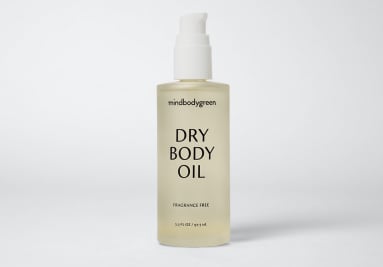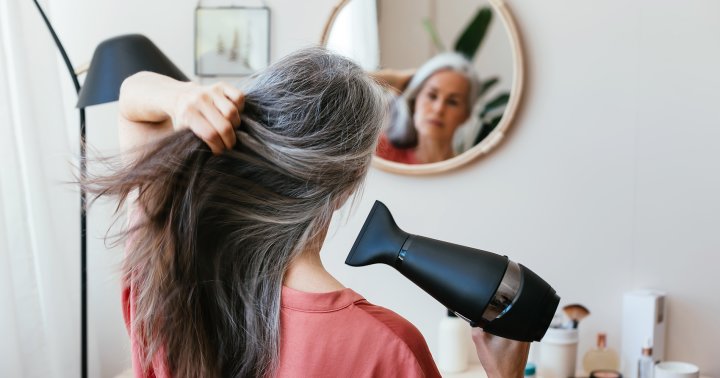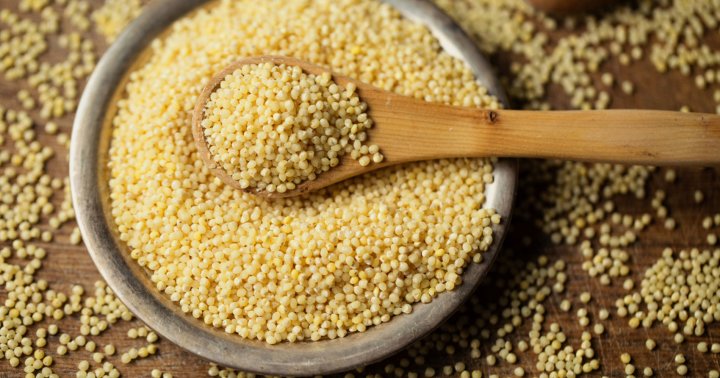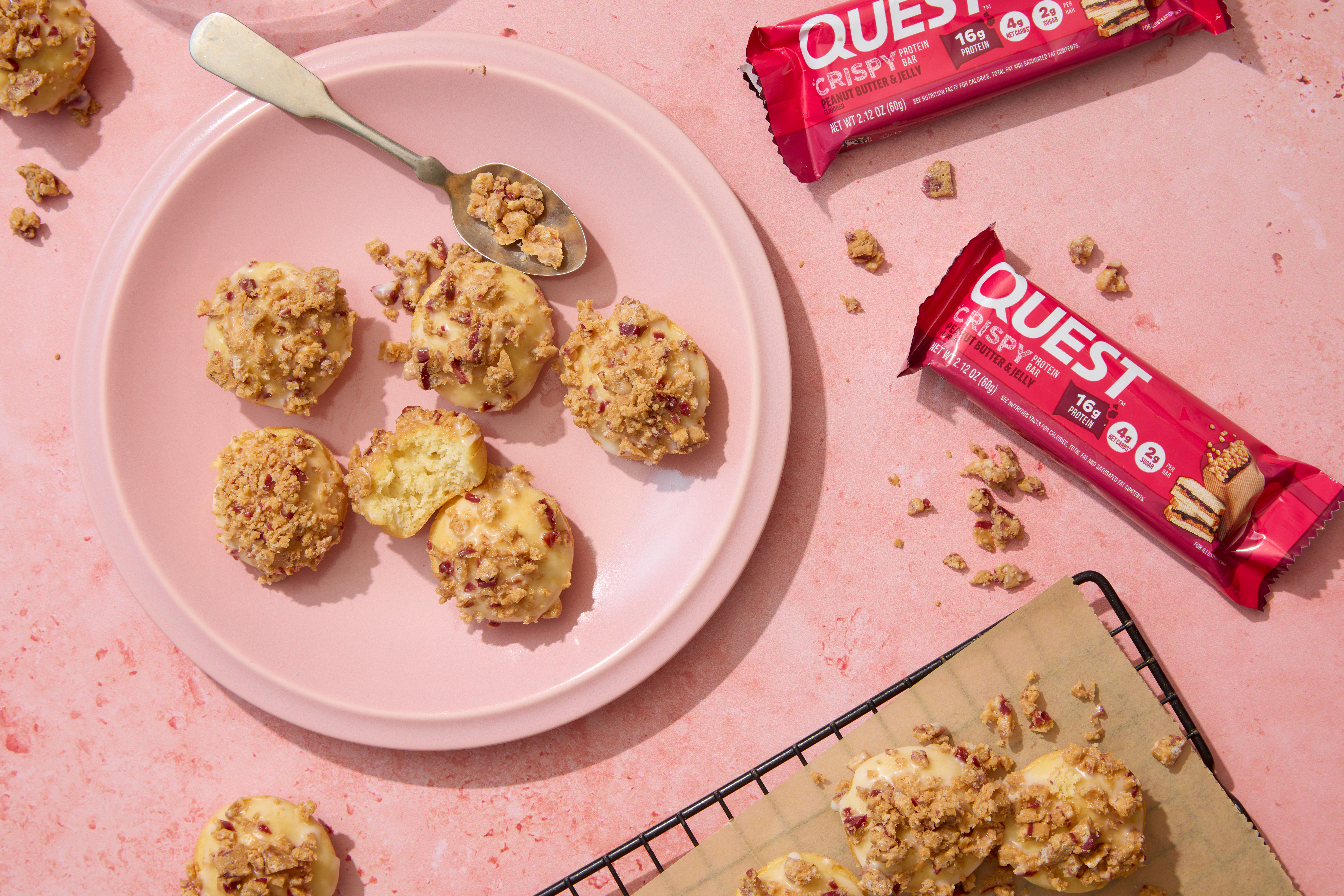If You Exfoliate But Your Skin Never Looks Smooth, This Could Change Everything
Here, a tip that can be a total game changer.
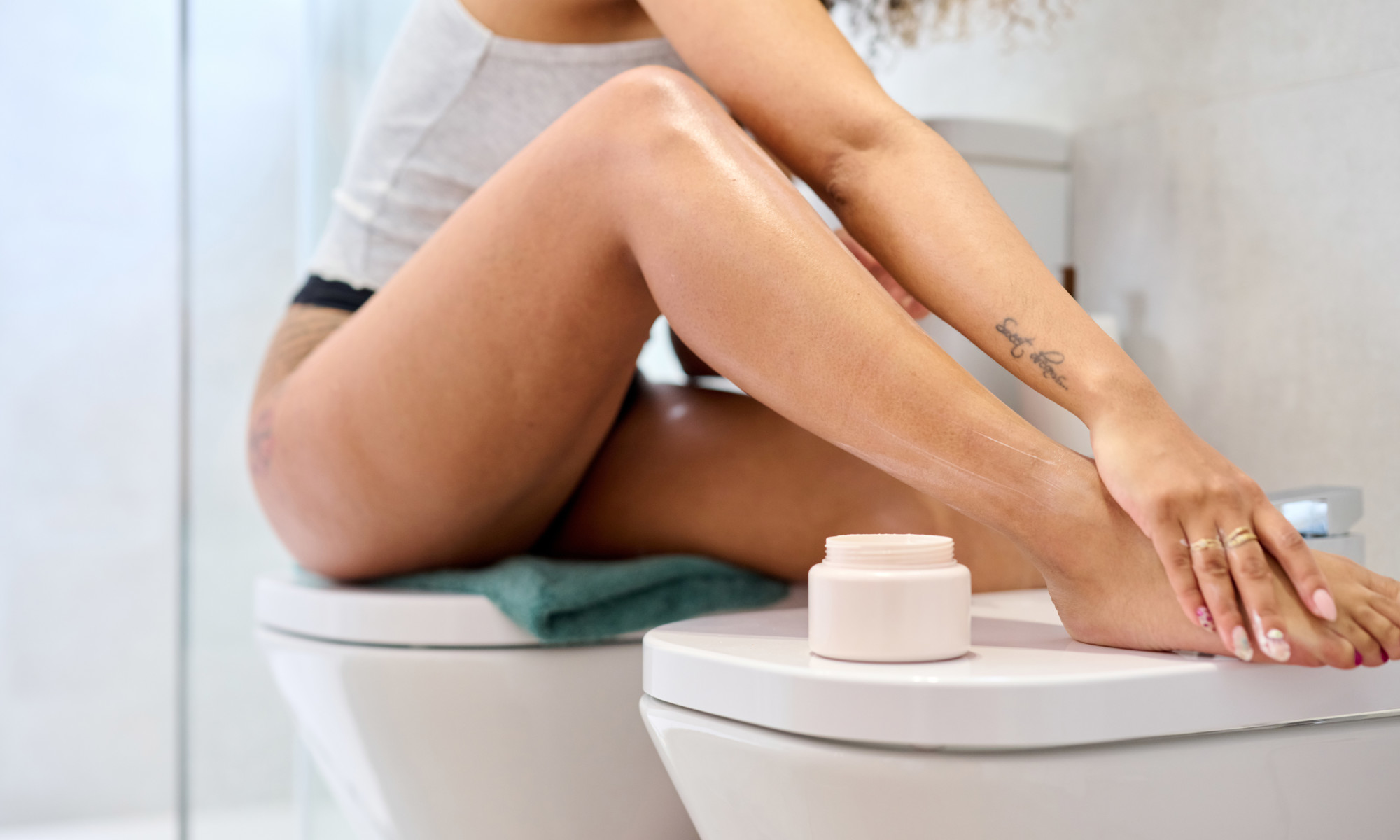

mbg Beauty Director
mbg Beauty Director
Alexandra Engler is the beauty director at mindbodygreen and host of the beauty podcast Clean Beauty School. Previously, she's held beauty roles at Harper's Bazaar, Marie Claire, SELF, and Cosmopolitan; her byline has appeared in Esquire, Sports Illustrated, and Allure.com.
Image by Guille Faingold / Stocksy July 14, 2023 Our editors have independently chosen the products listed on this page. If you purchase something mentioned in this article, we may Exfoliation is hailed as the golden ticket to smooth skin. And, in many ways, it is: Exfoliation helps slough off dead, dry, rough skin on the epidermis, making way for softer, more vibrant skin underneath. And while this isn't related to the aesthetic benefit, it's worth noting: The act of exfoliation just feels good. There’s something so satisfying about a body scrub or facial mask that offers immediate gratification. The results are basically instant and the sensation is oh-so pleasant. What’s not to love?
Advertisement
This ad is displayed using third party content and we do not control its accessibility features.
As a beauty director, I believe exfoliation is an important part of any beauty routine—so long as you’re doing it correctly. And since exfoliation is such a sensorial pleasure, I often find people can’t help but over-do it. I’d put myself into that camp: When I find a new buffing scrub that I love, I have to stop myself from lapping it up. (For what it’s worth: I have very sensitive skin and can’t tolerate much exfoliation to begin with.) And when exfoliation becomes too frequent, it can actually make skin rougher than it was before. Over-exfoliation breaks up the skin barrier, which is responsible for keeping skin hydrated, supple, and healthy. When it’s compromised, folks usually experience irritation, patchy texture, and even signs of premature aging such as fine lines. That was quite the preamble, but it brings me to what I want to share here. If you find that your exfoliation habit doesn’t seem to be working (i.e. you see rough patches, dry skin, fine lines, and bumpy texture), it may be a sign that you’re not exfoliating correctly. Here, a tip that can be a total game changer.What is “sandwiching” and how can enhance exfoliation?
Sandwiching—or strategically bundling a potent ingredient between two soothing ones—is not a new concept. In fact, lots of derms recommend sandwiching retinols between layers of hydrating lotions in order to soothe the dreaded retinol reaction.
"If you want to decrease the potency of a serum—like if it contains potentially irritating ingredients—then applying a moisturizer first could help make the serum less potent and less irritating," board-certified dermatologist Hadley King, M.D. told us about the layering trick. This will serve as a calming buffer.
It’s an ideal method for exfoliating too–not only because it’s effective, but because it’s refreshingly easy.
How to try it for the face
When folks exfoliate the face, it’s usually with one of three kinds of products: An exfoliating serum (such as those with AHA or BHAs), a resurfacing mask, or a face scrub.
For leave-on products such as serums, you’ll want to layer your products mindfully. After cleansing, apply a hydrating serum, such as a hyaluronic acid serum, just before slathering on the exfoliant. Follow up with a hydrating face cream as normal.
For a wash-off product like masks and scrubs, I like to start with an oil cleanse. Oil cleansing is a fairly common practice that involves just washing your face with oils, rather than a cream or foaming formula. It’s not for every skin type or every occasion, but I enjoy it before I apply a face scrub as it provides a barrier of lipids between my skin and the exfoliants. After the mask or scrub, rub in your go-to face lotion.
Advertisement
This ad is displayed using third party content and we do not control its accessibility features.
How to try it for the body
Sandwiching gained popularity for its facial application, but it’s really ideal for the body.
“Shower sandwiching” is a trick we learned from celebrity esthetician and dermatological nurse Natalie Aguilar. All "shower sandwiching" entails is applying body oil before and after the shower—so you're comforting your skin between those rich, nourishing fatty acids.
She considers it one of her favorite rituals to care for dry, rough skin. "This oil barrier prevents excessive water loss and helps with any irritation," she notes.
It’s a good habit to get into even on days when you’re not using a body scrub, as hot water from showers can render your complexion dry and ashy, as the steamy temperature can strip the precious natural oils from your skin. By massaging in a body oil pre-rinse, your skin can better hold on to moisture and keep the water from drying it out.
Advertisement
This ad is displayed using third party content and we do not control its accessibility features.
The takeaway
If exfoliation is something that ends up making your skin drier than it was before, sandwiching may be your solution. The habit requires only minor tweaks, but will make the world of difference in your skin texture.

 Koichiko
Koichiko 